 As anybody studying Spanish in Spain or anywhere else will be able to tell you, Spanish is full of little nuances and grammar rules that can be sometimes very hard to grasp consistently. Some mistakes tend to be quite general and others tend to be specific to students of a particular nationality owing to things such as false friends or L1 interference: where rules or words from one’s first language persist in affecting the way that person speaks Spanish. Here, we have decided to highlight 3 mistakes that are not mentioned very often unlike the common ser/estar confusion, or other mainstream grammar errors.
As anybody studying Spanish in Spain or anywhere else will be able to tell you, Spanish is full of little nuances and grammar rules that can be sometimes very hard to grasp consistently. Some mistakes tend to be quite general and others tend to be specific to students of a particular nationality owing to things such as false friends or L1 interference: where rules or words from one’s first language persist in affecting the way that person speaks Spanish. Here, we have decided to highlight 3 mistakes that are not mentioned very often unlike the common ser/estar confusion, or other mainstream grammar errors.
- Gender of words ending in a that are feminine but carry el:
This is something that confuses many people as, generally, these words tend to be feminine, but as we know, this is not always the case! It is well known that there are exceptions to this such as el día or el problema (and even the other way round; la mano), but to make things more confusing, there are words that carry the pronoun el but are still feminine! Examples include: el agua or el águila, but you will still say el agua fría or el águila hermosa. The only reason why they carry the pronoun el is because la agua with a double a sounds strange to pronounce and therefore are replaced with a masculine pronoun but are still feminine!
- Making cientos feminine when needed
This is quite a subtle one but it is quite simple. When a noun is feminine cientos must become cientas. For example: I have 507 euros would be tengo quinientos siete euros. This is fine as it is masculine. However, I have 507 cows should be: tengo quinientas siete vacas; a subtle change but one that is quite often forgotten!
- Using un or una when it is redundant
While here on a Spanish course in Granada this is something you will hear quite a bit. Quite often you will hear a foreigner say: ‘quiero una otra cerveza’ or ‘quiero un otro libro’ when it is much more natural to simply say ‘quiero otra cerveza’ or ‘quiero otro libro’ without the article. It is a common L1 interference as many other European languages such as French or English would require such an article.

As many people are aware Spanish can be quite a hard language to master grammatically but with the right frame of mind many little mistakes disappear rapidly. Probably the biggest mistake any student of Spanish can make is to be afraid of making mistakes. At Escuela Delengua the Spanish courses here in Granada are designed to immerse the speaker into the Spanish world where making mistakes and learning from them becomes part of everyday life. All Delengua students talk with each other in Spanish and you certainly learn as much Spanish outside the classroom as you do in it! Mistakes are an essential part of learning and no one should ever fear making them.




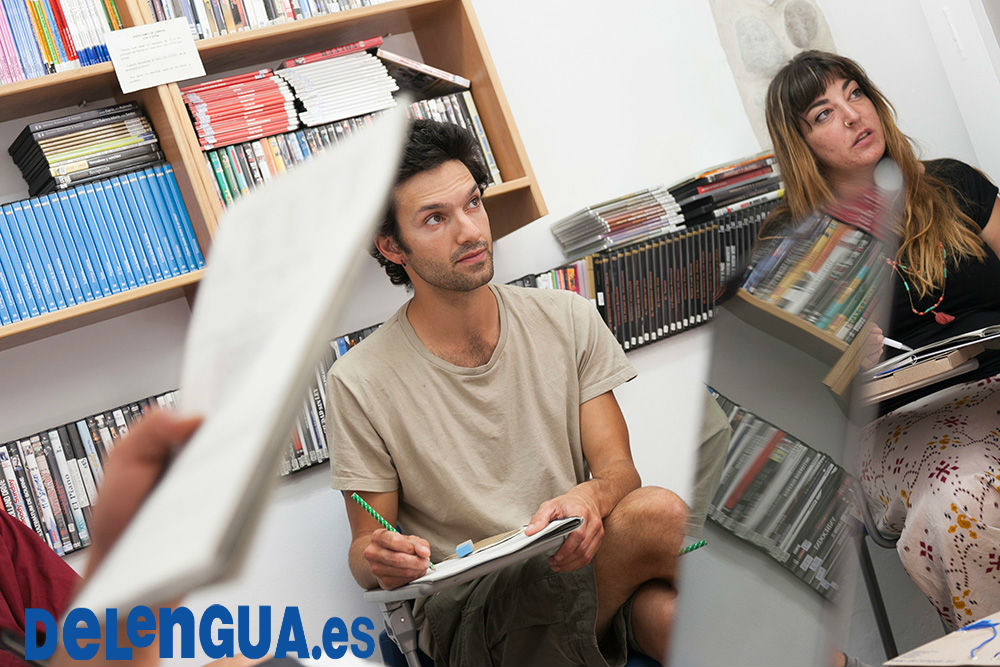



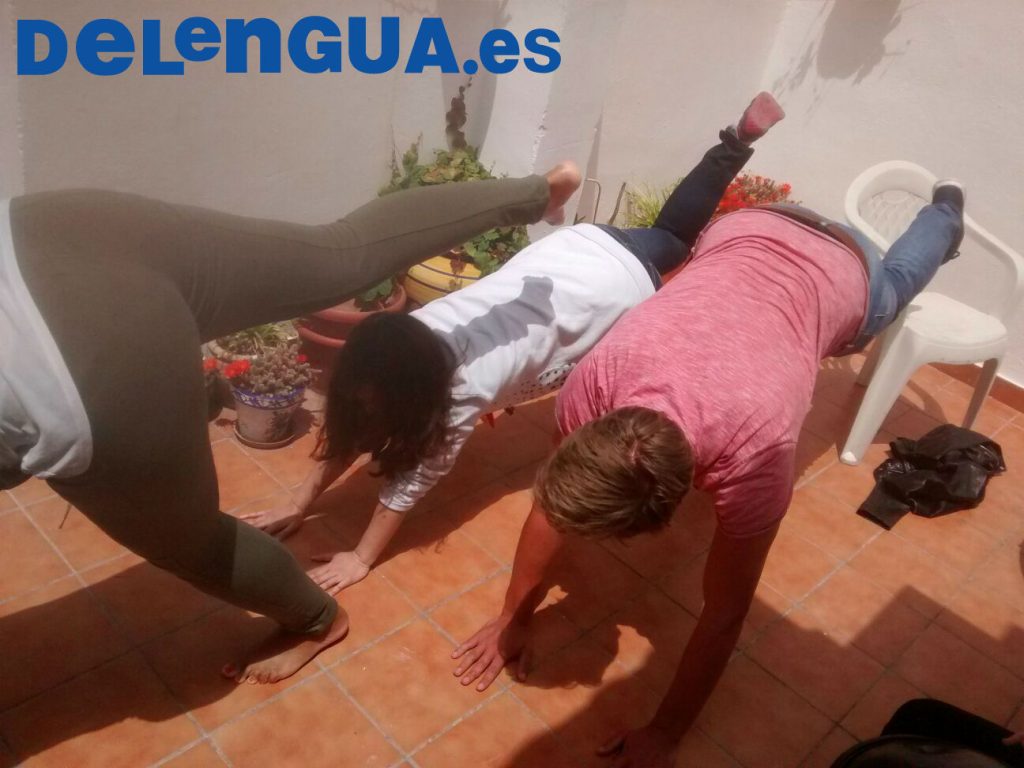
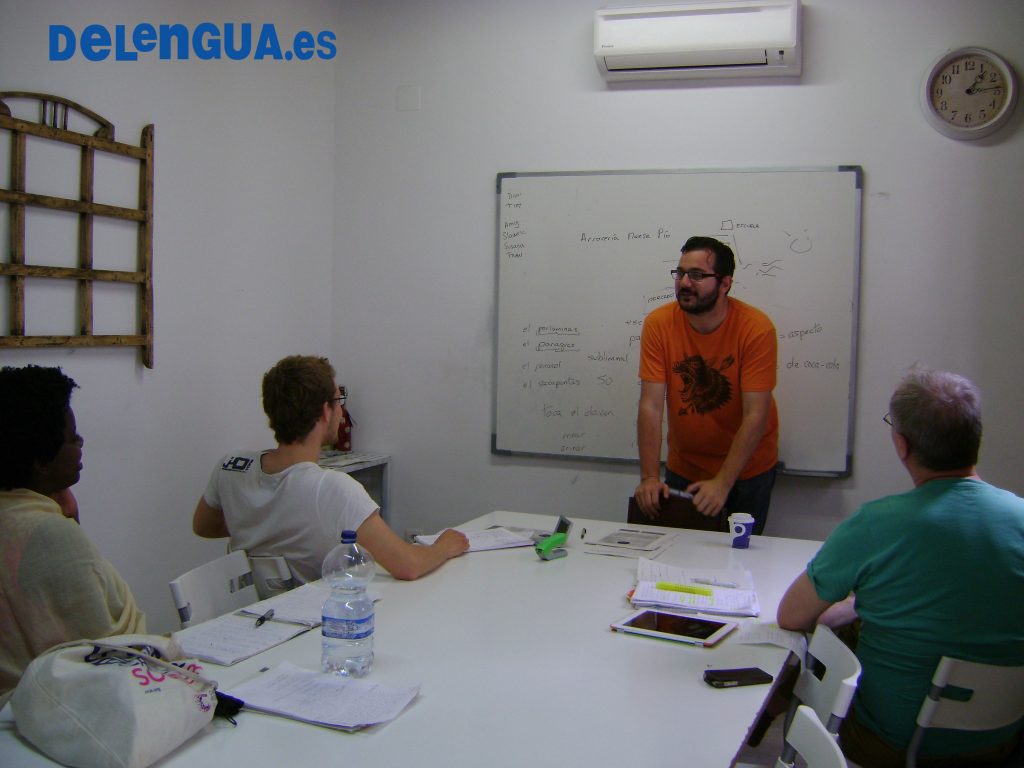

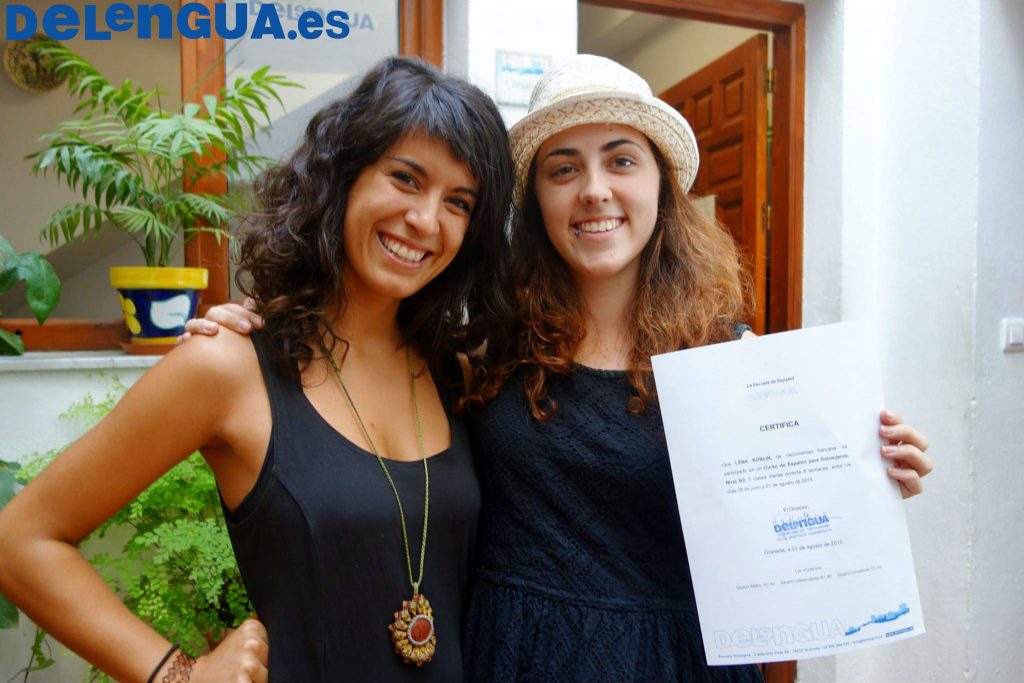
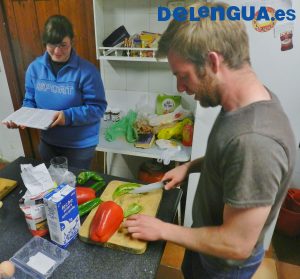


VERSIÓN ESPAÑOL
3 errores comunes cometidos por estudiantes de español en Granada y como no cometerlos
Como cualquiera que estudia español en España o en cualquier otra parte puede decirte, el español está lleno de matices y reglas gramaticales que pueden ser difíciles de llegar a dominar consistentemente. Algunos errores parecen ser más general y otros parecen ser más específicos a estudiantes de una nacionalidad en particular gracia a fenómenos como los falsos amigos o interferencia de la lengua materna: en la cual las reglas o palabras de la lengua materna continúan a afectar como se habla el español. Aquí, hemos decidido subrayar 3 errores que no se mencionan frecuentemente, a diferencia de la confusión entre ser y estar u otros errores gramaticales familiares.
Palabras de género femenino terminadas en a, pero que llevan el pronombre el:
Esto es algo que confunde mucho y, generalmente, estas palabras parecen femeninas, pero como sabemos ¡no es siempre así! Es bien conocido que hay muchas excepciones como el día o el problema (y al revés: la mano), pero para confundirnos un poquito más hay palabras que llevan el pronombre el ¡pero todavía son femeninas! Por ejemplo, el agua o el águila, pero todavía continuamos diciendo el agua fría o el águila hermosa. La única razón por la cual lleva el pronombre el es porque la agua -con doble a- suena muy desagradable de pronunciar, así que se usa con pronombre masculino ¡pero conserva su género femenino!
Cuándo es necesario poner cientos en femenino
Este tema es bastante sutil pero en realidad no es algo complicado. Cuando un nombre sea femenino, cientos tiene que convertirse en cientas. Por ejemplo, Tengo 507 euros sería tengo quinientos siete euros. Esta frase está bien porque es masculina. Sin embargo, tengo 507 vacas debería ser: tengo quinientas siete vacas; un cambio sutil ¡pero que se olvide mucho!
Usando un o una cuando no es necesario
Este fenómeno se oye mucho durante un curso de español aquí en Granada. Frecuentemente escucharás a un extranjero diciendo: ‘quiero una otra cerveza’ o ‘quiero un otro libro’, pero es mucho más correcto decir ‘quiero otra cerveza’ o ‘quiero otro libro’ sin el artículo. Es una interferencia de lengua materna bastante común debido a que poner el artículo es obligatorio en muchos otros idiomas europeos como el inglés o el francés.
Como saben muchas personas, el español puede ser un idioma bastante difícil de llegar a dominar gramáticamente, pero con el pensamiento correcto la mayoría de eses errores pequeños desaparecen rápidamente. Seguramente, el error más grande que se puede cometer un estudiante de español es tener miedo de cometer errores. En la Escuela Delengua, los cursos de español aquí en Granada están diseñados a sumergir el hablante en el mundo español en lo cual es normal cometer errores y aprender de ellos forma parte de la vida cotidiana. Todos los estudiantes de Delengua hablan entre ellos en español y seguramente es posible aprender tanto español como se aprende en clase. Los errores forman una parte esencial del proceso de aprendizaje y es importante que nadie tenga miedo de cometerlos.